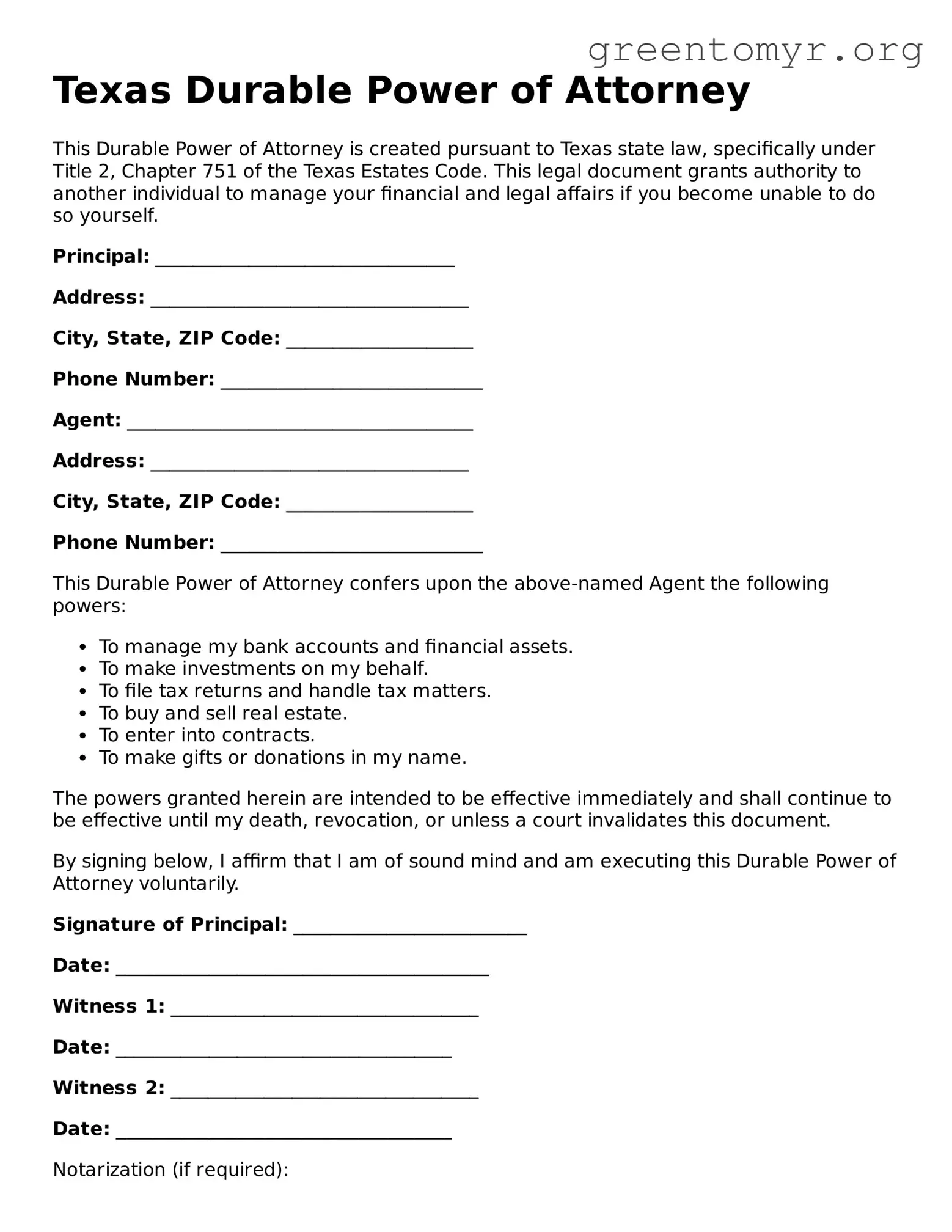Texas Durable Power of Attorney
This Durable Power of Attorney is created pursuant to Texas state law, specifically under Title 2, Chapter 751 of the Texas Estates Code. This legal document grants authority to another individual to manage your financial and legal affairs if you become unable to do so yourself.
Principal: ________________________________
Address: __________________________________
City, State, ZIP Code: ____________________
Phone Number: ____________________________
Agent: _____________________________________
Address: __________________________________
City, State, ZIP Code: ____________________
Phone Number: ____________________________
This Durable Power of Attorney confers upon the above-named Agent the following powers:
- To manage my bank accounts and financial assets.
- To make investments on my behalf.
- To file tax returns and handle tax matters.
- To buy and sell real estate.
- To enter into contracts.
- To make gifts or donations in my name.
The powers granted herein are intended to be effective immediately and shall continue to be effective until my death, revocation, or unless a court invalidates this document.
By signing below, I affirm that I am of sound mind and am executing this Durable Power of Attorney voluntarily.
Signature of Principal: _________________________
Date: ________________________________________
Witness 1: _________________________________
Date: ____________________________________
Witness 2: _________________________________
Date: ____________________________________
Notarization (if required):
(This section may vary based on your preferences and legal requirements.)
Notary Public Signature: _____________________
My Commission Expires: _____________________
